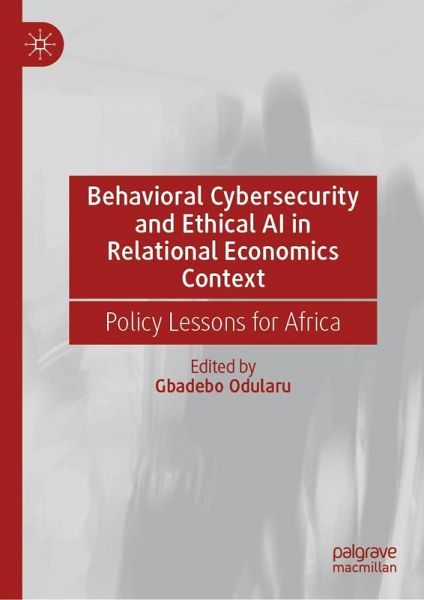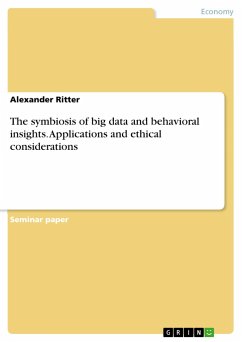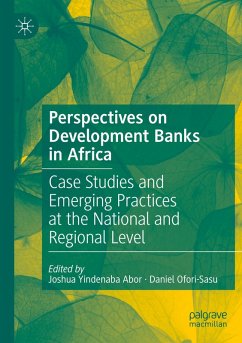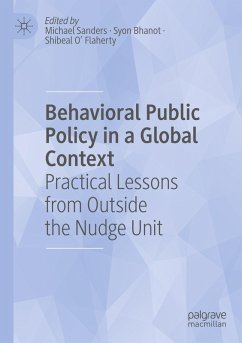
Behavioral Cybersecurity and Ethical AI in Relational Economics Context
Policy Lessons for Africa
Herausgegeben: Odularu, Gbadebo
Versandkostenfrei!
Versandfertig in 6-10 Tagen
149,99 €
inkl. MwSt.

PAYBACK Punkte
75 °P sammeln!
Artificial intelligence can enable unique socioeconomic circumstances. This interdisciplinary book applies behavioral economics to AI-driven dynamics and concepts such as cybersecurity. Blending cutting-edge theory, workable policy insights, and human-AI cooperation, this book provides an ethical governance framework readers can apply across different contexts.The book identifies unique AI-driven patterns, cultural nuances, and socioeconomic drivers in African contexts, asking readers to rethink their approach to knowledge-based systems, behavioral frontiers, and cybersecurity. The book adopts...
Artificial intelligence can enable unique socioeconomic circumstances. This interdisciplinary book applies behavioral economics to AI-driven dynamics and concepts such as cybersecurity. Blending cutting-edge theory, workable policy insights, and human-AI cooperation, this book provides an ethical governance framework readers can apply across different contexts.
The book identifies unique AI-driven patterns, cultural nuances, and socioeconomic drivers in African contexts, asking readers to rethink their approach to knowledge-based systems, behavioral frontiers, and cybersecurity. The book adopts an interdisciplinary approach to help readers decode how AI shapes African government cybersecurity choices.
With a unique focus on supporting safer and more resilient cybersecurity behaviors in Africa, the book provides insights into the interconnections between education, finance, entrepreneurship, information science, psychology, public health, and other policy domains, the book proposes workable policy tools to help action the African Union Agenda 2063. Chapters offer constructive approaches to reconfigure the UN's SDGs 2030 themes related to cybersecurity and AI.
Readers will discover opportunities to bolster the capacities of policymaking and research to enable AI-driven technologies, support cultural nuances, and transform socioeconomic circumstances.
The book identifies unique AI-driven patterns, cultural nuances, and socioeconomic drivers in African contexts, asking readers to rethink their approach to knowledge-based systems, behavioral frontiers, and cybersecurity. The book adopts an interdisciplinary approach to help readers decode how AI shapes African government cybersecurity choices.
With a unique focus on supporting safer and more resilient cybersecurity behaviors in Africa, the book provides insights into the interconnections between education, finance, entrepreneurship, information science, psychology, public health, and other policy domains, the book proposes workable policy tools to help action the African Union Agenda 2063. Chapters offer constructive approaches to reconfigure the UN's SDGs 2030 themes related to cybersecurity and AI.
Readers will discover opportunities to bolster the capacities of policymaking and research to enable AI-driven technologies, support cultural nuances, and transform socioeconomic circumstances.












